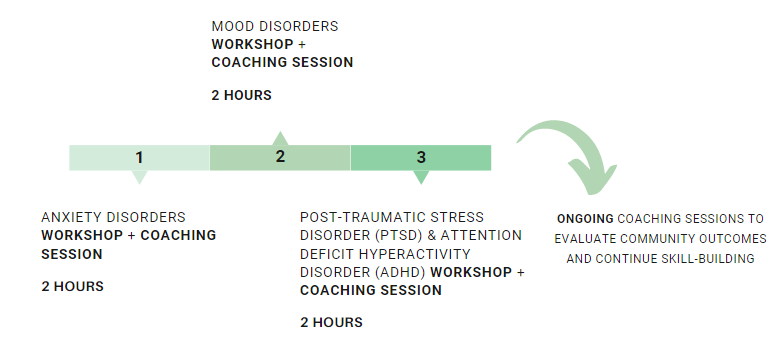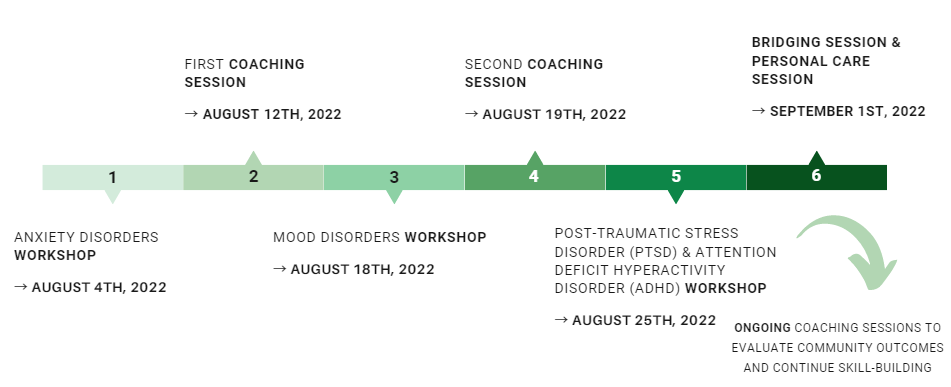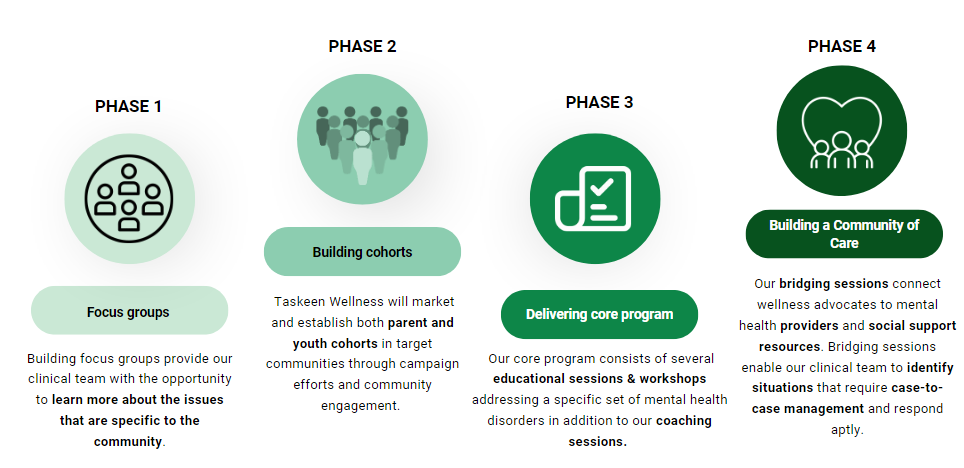Thorncliffe Park And Flemingdon Park Debrief of Cohort #3: Parents
WHO:
Our second parent cohort consisted of doctors, educators, community leaders, active volunteers, and community ambassadors.
83.3% of participants in our first youth cohort were women and 16.7% of our participants were men.
- 5/6 PARTICIPANTS → WOMEN
- 1/6 PARTICIPANTS → MEN
WHAT:
Wellness advocates participated in several structured educational sessions led by our team of mental health professionals.

Our initial sessions took place on a weekly basis. The program intends to maintain a rolling intake of participants while offering ongoing coaching sessions as a form of long-term support to evaluate community outcomes and progress.

In our virtual workshops, wellness advocates had the opportunity to reflect on their current mental health and develop strategies for maintaining their health and well-being.
Wellness advocates learned to:
- Acknowledge the significance of mental health as part of their personal and professional life.
- Recognize and dispel the stigmas that typically surround mental health disorders.
- Recognize indicators of a possible mental health disorder in youth and adults.
- Develop an understanding of the strategies and treatment options available for mental health disorders.
- Have a greater understanding of mental health disorders and how they can occur.
- Develop greater comfort in seeking help for themselves and others.
WHY:
The physical and psychosocial consequences of the COVID-19 pandemic have exacerbated pre-existing disparities in access to mental health care, support, and resources. However, in high-risk communities, like Thorncliffe Park and Flemingdon Park, the lack of diverse and inclusive mental health services acts as an additional barrier to the already limited support available for parents.
Taskeen Wellness’s program model addresses long-standing barriers to mental health support by actively addressing gaps in communication, promoting connectedness, and building resiliency within communities.

- In our coaching sessions, wellness advocates expressed “meeting youth where they are” by engaging parents and youth collaboratively in recreational activities to build a sense of community.
- Discussed the lack of trauma response efforts in the community after several incidences of suicide.
- Participants shared experiences concerning stigma around the use of medication to treat mental health disorders.
- Conversation around domestic violence, gang violence, and gun violence within the community and their origins.
- Addressed extending the program to primary care providers and partnering with community providers.
- Wellness advocates expressed the benefit the program could have by being offered as workplace mental health workshops.
- Overall sharing of experiences, knowledge, and wisdom on challenges within the community.
